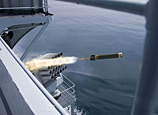
Related Reading
China to continue to patrol in Diaoyu Islands
Why US meddles in Diaoyu Islands issue?
China closely monitoring Japanese encroachment on Diaoyu Islands
Special Coverage: No concession on Diaoyu Islands
BEIJING, Jan. 11 (Xinhua) -- The Japanese economy, under the burden of years of deflation and an aging population, has been the "Patient of Asia" for the last two decades.
The Japanese people can cite many reasons for their economic malaise, from bad government policies that led to the forming and bursting of a giant economic bubble in late 1980s and early 1990s to cumbersome mega companies that have been losing money and shedding jobs due to increasing global competition.
More recently, the Japanese economy has suffered another blow due to a bitter row with China, a crucial trade and investment partner, ignited by Tokyo's repeated provocations over the Diaoyu Islands, an integral part of Chinese territory.
Yet new Japanese Prime Minister Shinzo Abe turned the facts upside down when he claimed Friday that China has deliberately targeted Japanese companies as part of a strategy to confront Japan over the territorial dispute.
It is true that economic ties between China and Japan have chilled considerably since former Prime Minister Yoshihiko Noda's cabinet decided to "buy" part of the Diaoyu Islands in September despite strong Chinese opposition.
The outcome is nothing but natural, as good economic relations are always based on sound political ties. It is naive to believe that Japan can maintain strong trade and investment ties with China while repeatedly provoking China on critical issues.
In addition, the pinch felt by Japanese companies results largely from an across-the-board boycott of Japanese goods spontaneously staged by Chinese consumers who felt betrayed by the bellicose Japanese government. The Chinese government has nothing to do with this.
 |
















 Beijing police save female hostage
Beijing police save female hostage


![]()
